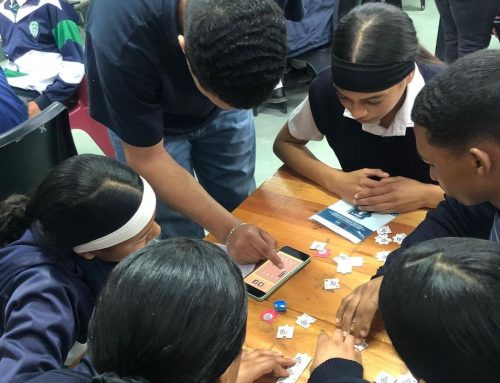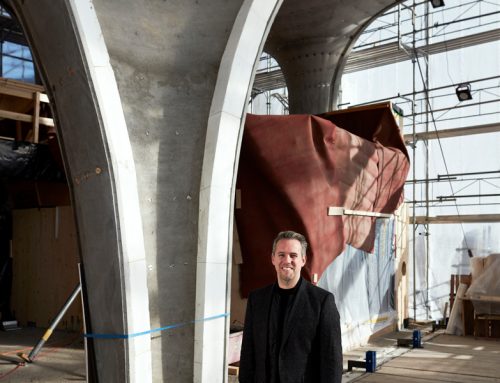The world has its Ivy Leagues, Oxfords, Cambridges, Kyotos, Tokyos, Pekings and Delhis – recognised as the top universities in the world. Why should South Africa be any different? It is long overdue to establish our own top league, perhaps call it the Madiba League, including the top six research-intensive universities in the country. The good news is that the National Development Plan supports this thinking.
In this era where the pay-off lines ‘globally competitive’ and ‘world-class’ have lost their authenticity through over-use and under-implementation, it is easy to roll our eyes at the ascending call for a differentiated higher education system with world-class universities as the horsemen of South Africa’s global competitiveness. Yet it is necessary to set our cynicism aside and sit up and respond to the call, and to examine afresh why world-class universities are a national imperative.
Wits’ Director of Strategic Planning, Nhlanhla Cele sums it up:
“World-class universities are an embodiment of national strength and competitiveness in a knowledge economy where top-end intellectual capital is perceived as an article of global strength. These universities showcase the complexity and sophistication of national systems – and every country that sets its growth path and development agenda on knowledge leadership needs such institutions.”
Whether or not we agree with the concept or ideology of world-class universities is a protracted debate. What is incontestable is that this is the way the developed world currently works; it is a system where the global competitiveness of world-class universities is measured by their ability to attract (1) high-calibre researchers and scholars, (2) exceptionally talented and capable students, and (3) to produce internationally revered research with high global citation impact (measured through the citation index).
Countries throughout the world, both developed and developing, including the United States, Austraila, Japan, China, India, South Korea, Kazakhstan, Nigeria, Malaysia and numerous European Union countries have all made strategic investments in such universities to support their economic development and global competitiveness. Cele emphasises that South Africa cannot afford to be excluded if we hope to become globally competitive.
To achieve this requires a lot more than pay-off lines. It requires committed national investment in the development of a differentiated higher education system, where the top six universities, notably Wits, the University of Cape Town, the University of Stellenbosch, the University of KwaZulu Natal, Rhodes University and the University of Pretoria are strategically developed as ‘Ivy League’ or ‘Madiba League’ research-intensive universities. In such a system an institution like Wits, for example, which is currently 70% undergraduate and 30% postgraduate, would shift to 50/50 and would invest in attracting highly talented students and scholars, and participate in leading edge, applied and blue sky research.
This, Cele emphasises, does not in any way detract from the importance of developing all the other universities (South Africa has 23 in total), which, as teaching-intensive or technology based institutions play an equally critical role in terms of undergraduate education and skills development for South Africa.
“Both the research-intensive and the teaching-intensive universities would be developed according to their specific strengths and there would be plenty of coordinated collaboration and cross-pollination of research between all the institutions to develop the different skills needs of our economy,” he adds.
Logically, you’d expect nothing less from the significant African economic powerhouse that we are, yet South Africa, has until now, neglected to develop strategies of this sort. “The question of how South African universities should be assisted to achieve this goal has been lost in the abyss of political ideological debate and reluctance to differentiate universities, based on the fear of repeating racial demarcations from the apartheid system,” says Cele.
Which is why, it came as a rush of hope when the National Development Plan, released by Minister in the Presidency Trevor Manuel in 2011, emphasised that South Africa aims to approach “developed world status” by 2030, not as some vanity of the high-rollers, but in order to grow the number of employed people from 11-million to 24-million by 2030.
“A skilled and capable workforce is essential for decent work, rural development, sustainable livelihoods, public health, reduction of inequalities, and investment in a knowledge-based economy, explains Cele.
It is hoped that Higher Education Minister Blade Nzimande recognises and embraces this. The National Development Plan (NDP) certainly does, in a number of areas, stating that the economy needs to focus on:
– Doubling the annual expansion in high-skills supply and improving education throughout;
– Intensifying research and development spending; and
– Aligning centres of learning to industrial clusters with potential for domestic and global linkages.
The NDP further states that “innovations across state, business and social sectors should start to become pervasive” and that South Africa needs to adopt a far more progressive policy on skilled migrants. This will directly benefit our universities as the Department of Home Affairs will need to make it easier for universities to recruit top research and academic talent from all over the world. This talent, combined with our homegrown talent, will significantly contribute towards South Africa’s global competitiveness.
If South Africa chooses not to follow this path, not only will the economic development and global competitiveness of this country find itself on an accelerated downward slide, but every individual with a degree from esteemed universities like Wits will experience a demoting of their academic standing.
“Wits alumni have a vested interest in the status and performance of their institution. As graduates, Wits is our academic brand; a promise to industry and government that we have obtained skills and knowledge that make us capable of performing in roles with the highest responsibility and, in some cases, the highest technical complexity,” Cele explains.
“Unlike consumers, Wits graduates cannot simply swop brands if they feel the brand is not living up to its promise. For most graduates, starting again with another university is not an option. What can happen is that future graduates decide to study at institutions that have greater brand presence or prestige.
“To avoid this, every country should have top league universities where irrespective of whether you are black, white, middle class or working class, you have the opportunity to participate in and contribute to the highest level of intellectual capital,” says Cele who believes that every country should also have world-class teaching-intensive universities and world-class universities of technology. “What has happened to the imagination of our higher education leaders that they don’t see this?”
Professor Mamokgethi Setati Phakeng who is currently the Vice-Principal of Research & Innovation at Unisa and an Honorary Professor in mathematics education at Wits, is not entirely convinced about differentiation:
“The differentiated higher education system issue is a can of worms that I wish I could avoid,” she says. “The problem is that if you differentiate certain universities, how do you avoid a situation where all the other institutions land up feeling second best and resenting that they are left to do the donkeywork for the ‘chosen’ universities.”
She believes the kind of differentiated system South Africa needs is where all the universities start specialising in their areas of strength at undergraduate and postgraduate level, such as engineering at Wits or agriculture at the University of Venda.
“This way you will have a good measure of undergraduate and postgraduate students at all the universities,” says Setati Phakeng who further believes that the former technikon and college system should be revived. “Students wanting to become teachers and nurses, for example, should be able to go to specific institutions to be trained. The same applies to students wanting to learn trades, such as plumbing or electronics. I think it was a political decision to abandon the former college and technikon system but it was not a good one.
“It is extremely important to have these institutions because not all students want to go to university or are suited to academic studies,” says Setati who takes a step further back to basic education. “It is slipping fast and we are not dealing with the people issues of extreme incompetence and mediocrity dominating basic education in South Africa today. We are reluctant to talk about excellence and world-class in the secondary schooling system, yet many of the students whom we want to match up to our world-class standards at university will come from these schools.”
What Wits is doing “really right” says Setati Phakeng is targeting high school talent to introduce learners to the university environment while they are still at school. “I think this approach is critical because it helps student to become comfortable with the culture of the university. I know this from my experience of coming from a rural area to do my Honours at Wits. I did my undergraduate degree at the University of Bophuthatswana and it was not easy to adapt to Wits.
“To give you an example, I come from a culture where you don’t just speak out in class; you raise your hand and wait for the lecturer to give you an opportunity to speak. But at Wits if you didn’t boldly speak out and make yourself heard, your questions wouldn’t be answered and you would be disadvantaged. These are the subtle details that universities need to think about in terms of nurturing scholars to be able to perform at world-class levels.
“So what I am saying is that differentiation needs to take place at all levels, it is not just about being globally competitive. I agree that this is extremely important, but we need to scrutinise how we are measuring this global competitiveness and whether we are paying close enough attention to all the elements that feed into it.”
The top World University Rankings, including Times Higher, Quacquarelli Symonds (QS) and Shanghai annually list the top 500 universities.
Wits’ latest QS ranking revealed that the University is on an upward trend, from 399 in 2011 to 363 in 2012. This is welcomed as a step towards its vision of being ranked in the top 100 universities by 2022.
Wits is currently ranked at around position 360 out of some 20 000 universities by the QS Rankings (United Kingdom ranking system) and the Shanghai Rankings (Chinese ranking system) – two of the top ranking systems in the world.
“This significant move forward is encouraging and we thank our academics, Deans, Heads of School and the Vice-Chancellor’s Office for their commitment to our vision. We also thank our support services for striving to provide excellent support to our academics and students, which indirectly contributed to this improvement. Well done everyone, and let us aim to be in the top 250 by 2015,” says Cele.
But why does it matter whether Wits is in the top 100 or top 500 universities?
Put it this way: if the world’s top ranking system for travel destinations listed 500 places as the best global experiences based on a specific list of criteria, a lot of people would consider visiting these places. It wouldn’t mean that there aren’t hundreds of other wonderful places that are equally worth visiting based on other criteria, there are, but human nature dictates that recognised ranking systems attract significant status and buy-in. And this is where university rankings come in, as Cele explains:
“In reality no one knows the tangible or visible difference between an institution ranked 500 and one ranked 501, yet that marginal difference displaces institution 501 from the top 500 league. That displacement alone has huge implications for an institution ranked 501 in terms of:
(a) funders who want to donate their money to top-league universities
(b) scholars and researchers trying to figure out where to work
(c) students trying to establish where to study
(d) employers planning to recruit the best graduates
(e) governments planning to invest in leading-edge research and intellectual capital
(f) universities exploring partners for research networks
(g) industries looking for innovative solutions.”
Following on this, Wits’ strategy is all about aggressive internationalisation rather than rankings per se, as Cele explains: “Wits is not obsessed with the ‘top 100 goal’ for the sake of it, but sees this goal as a proxy for global excellence. What matters to the Wits community is that the global reputation of this university, earned through 90 years of research and academic excellence, is preserved, nuanced and carried into the future. It is our global visibility and the impact of our research and graduates that we cannot give away, and the ‘top 100’ target guides our imagination of the future we want for this University.”
While Cele offers a compelling argument, Professor Setati Phakeng believes the measures used in determining the rankings are problematic:
“The qualitative measures on which they are based do not include, for example, rewarding development contributions such as the degree to which a university like Wits serves Africa and responds to African problems. This can lead to highly ranked universities that are a little alien to the context in which they are located.”
Setati Phakeng adds that she also does not believe that students and academics are as driven by the rankings in their choice of higher education institution as the rankings would have us believe.
“People look at other issues, such as whether the university offers a supportive environment, whether one’s academic career can thrive there or not, how workload is allocated, what the salaries and research incentives are like and whether one’s contribution will be appreciated.”
Setati Phakeng feels Wits needs to look more closely at these issues.
“Ultimately these issues also feed into the rankings and will reflect in a variety of areas of staff performance such as the research output per academic member at Wits, which has not increased as much as it could have since 2009.”
Setati Phakeng feels Wits need to do more to look after its staff members to make them feel valued and that they have a future at the institution. “Salaries are important but it’s not just about money, it’s equally about feeling valued and supported by the whole institutional environment, which is what I believe the academic strike was mainly about,” she says.
“I say all these things because I want Wits to thrive. Let me be clear here, if Wits gets into the top 100 universities in the world, I will be over the moon because it is good for me and all the other Witsies, and it is good for the country and good the continent. But for this to happen transformation needs to start at the ground level, not at the rankings level with proclamations of where we hope to be ranked by 2022.”




